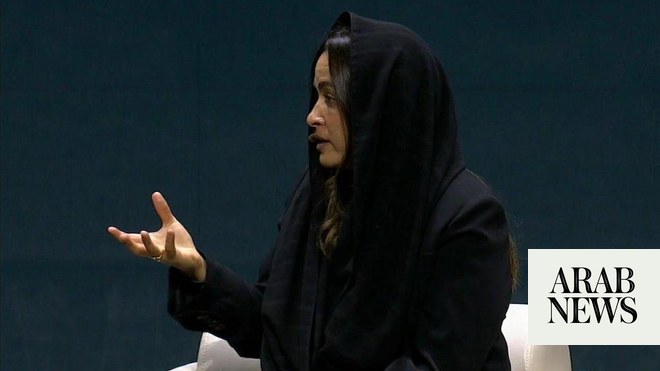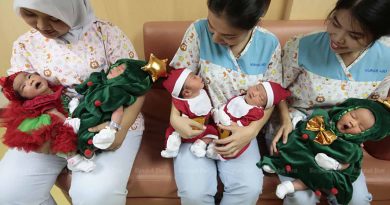Lamia Bahaian calls for ‘genuine collaboration to drive transformative change in women’s football’

SYDNEY: Lamia Bahaian, the first female vice president of the Saudi Arabian Football Federation, called for “genuine collaboration” in women’s football when she spoke at the FIFA Women’s Football Convention on Saturday in Sydney.
The convention took place a day before the final of the FIFA Women’s World Cup, Australia and New Zealand 2023.
In a panel discussion, Bahaian recounted the transformation of women’s football in Saudi Arabia over the past 15 years, highlighting how it had started with a community league initiated by dedicated women. Central to this transformation was SAFF’s recognition of women’s football as a key pillar in their long-term strategy, signifying a shift in mindset and priorities within the sports landscape of Saudi Arabia.
Bahaian said that football in Saudi Arabia was ingrained in the culture, transcending gender barriers, and emphasized that “football is a universal language capable of bridging gaps.
“Unity and collaboration play a pivotal role in bringing about genuine change,” she said. “I urge the football community to collectively break down cultural stereotypes and biases around women’s football and leadership roles.
“When it comes to women’s football in Saudi Arabia, we are breaking records,” Bahaian said. “Each step we take is a historic one, breaking down barriers and forging a new era for women’s football on our terms. While we may be at a different stage in our football journey, we are happy and proud of our everyday progress.
“If we want real change, cultural change, the football community must collaborate and connect wholeheartedly to drive transformation, understand each other, accept differences, and extend mutual understanding. It’s all about fostering meaningful conversations based on facts, leaving aside mere opinions.”
Under Bahaian’s leadership, Saudi Arabia has achieved significant milestones in women’s football in recent years. Notable accomplishments include the establishment of the Women’s Premier League, Women’s First Division League, and the development of various national teams spanning different levels.
In 2022 alone, SAFF recorded an 86 percent increase in the number of registered female players compared to 2021, from 374 to 694. The number of women’s clubs nationally also rose by 56 percent from 16 to 25 during the same period, as did the number of coaching courses conducted — up 557 percent from 7 to 46. More than 48,000 players competed in the 2022-23 Schools League across 3,660 teams, highlighting the emerging talent that can take the game to new heights.
“This World Cup has been amazing, especially when you think about all the girls who are watching and dreaming about playing in the FIFA Women’s World Cup one day,” Bahaian said. “Thanks to this tournament, new countries are shining, and a new champion will be crowned on Sunday. So, this is beautiful to see. This means growth, hope, and the reward for hard work paying off.
“Millions of girls in Saudi are watching and dreaming too. Through football, you empower and educate. Through football, you build leaders and role models, and it is the perfect platform to do so.”
During her session, Bahaian unveiled plans for the release of the documentary, “Destined to play: The untold story of Saudi women’s football,” produced collaboratively by FIFA and SAFF. The film aligns with the theme of cultural transformation, aimed at reshaping perceptions and dismantling stereotypes of the Kingdom.
She added: “The documentary unveils our untold story and introduces pivotal Saudi female players, aiming to inspire girls not just in Saudi Arabia but around the world to embrace their differences and unite through their shared love for football.”
Themed “Women’s Football, a Driver for Greater Societal Change,” the session was moderated by Dr. Vladimir Borkovic, co-founder of Street Football World and director of Strategic Alliances at the pledge-based charitable movement, Common Goal.
The panel included other notable contributors such as Amy Lasu, captain of the South Sudan women’s national team, and Prof. Susan Harris Rimmer, director of Australia’s Griffith University Policy Innovation Hub and co-convenor of the Griffith Gender Equality Research Network.
SAFF have 90 female beginner referees, more than 1,000 qualified coaches, and 50 international players from 20 countries competing in the Women’s Premier League. The Saudi women’s national outfit attained an official FIFA ranking for the first time five months ago, with Anoud Al-Asmakhi becoming the first Saudi women recognized by the game’s governing body.
SAFF has also introduced a new funding scheme for local women’s clubs, estimated to be worth SR49.9 million ($13.3 million) to support clubs attract talents, establish new teams and have the means to participate in official competitions.
Source – Arab News




